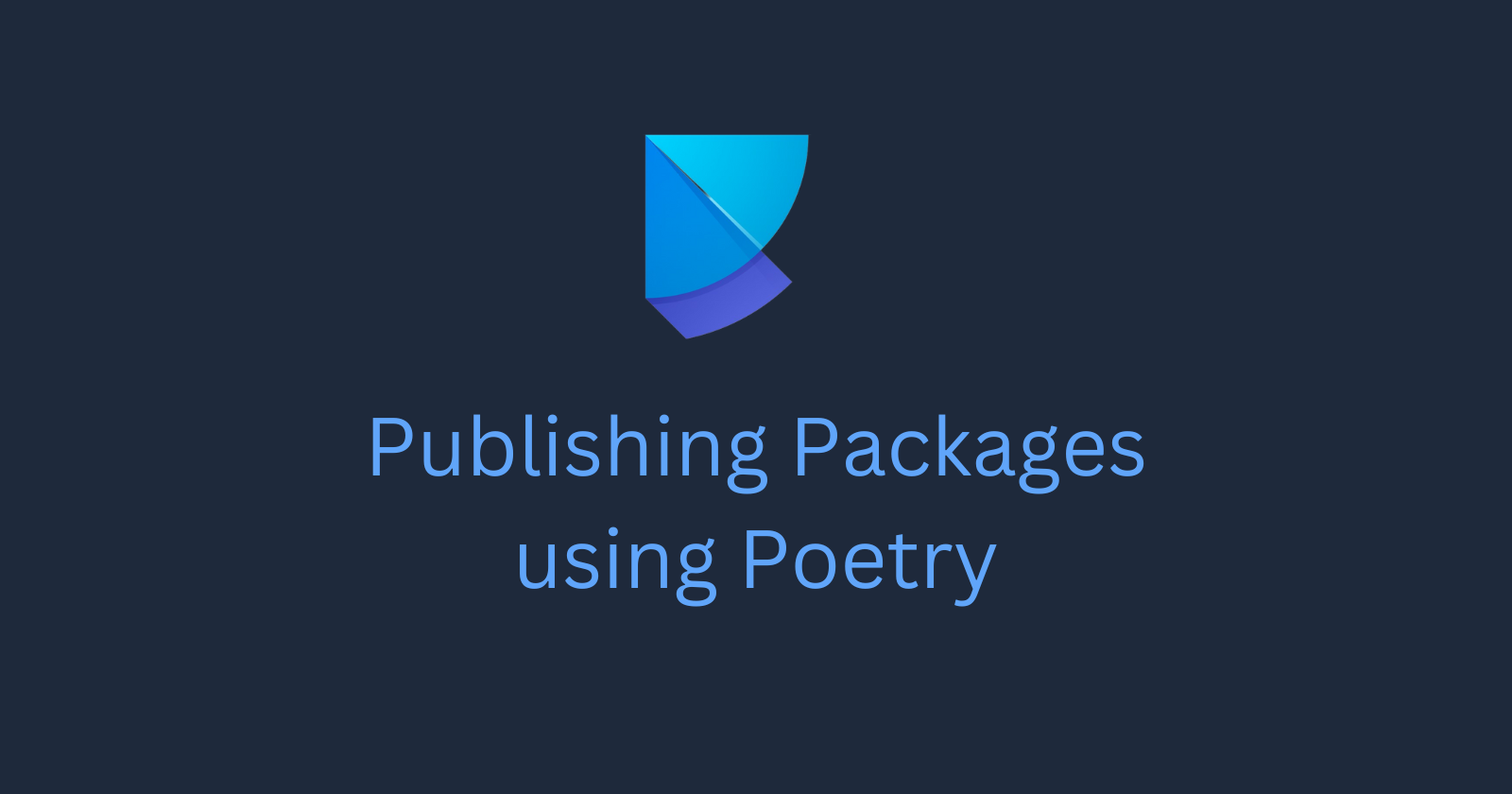Publishing Packages using Poetry
 Siddhesh Agarwal
Siddhesh Agarwal
Poetry is rapidly gaining recognition as an excellent dependency manager in the Python community. It has risen rapidly to become the dependency manager for various projects across the Python community. But did you know that not only can poetry be used as a dependency manager but it can also be used for publishing Python packages to PyPI? I have previously written about publishing to PyPI using the tedious setup.py-bdist-twine method
Initiating a project
To start a new project, run the following command:
poetry new poetry-demo
This will create a file poetry-demo with the following file structure:
poetry-demo
├── pyproject.toml
├── README.md
├── poetry_demo
│ └── __init__.py
└── tests
└── __init__.py
NOTE: Check the availability of the name on PyPI
Adding Dependencies
To add dependencies to the project, we run the command:
poetry add <dependency>
For example, to add pandas as our dependency, we run the command:
poetry add pandas
If you are adding a dependency for the first time in a project, you will notice a new poetry.lock file being generated. It contains dependencies along with their corresponding versions and checksums/hashes. This helps users to always be on the same depency versions. It also results in faster dependency conflict resolution.
Read more about poetry
Poetry also allows us to create groups. We can do them something like this:
poetry add black isort --group dev
The installation command will now be:
pip install "poetry-demo[dev]"
Tweaking poetry.toml
The poetry.toml file contains metadata similar to the setup.py file. We can enter various things like name, version, description, license, authors, readme, repository, keywords and classifiers among other things.
Read more about the
poetry.tomlfile
Publishing on PyPI
Before publishing our project on PyPI, We need to create a build:
poetry build
This generates a dist folder that contains a targ.gz and a whl file. Poetry works only for vanilla Python builds (no C/C++/Rust builds 😞). Now, to publish these files to PyPI, we run the command:
poetry publish
You will be prompted for your PyPI username and password. Enter them to upload the packages. Instead of running 2 sperate commands, uou could combine the 2 commands and run this instead:
poetry publish --build
And congrats, you published a library using poetry!
Subscribe to my newsletter
Read articles from Siddhesh Agarwal directly inside your inbox. Subscribe to the newsletter, and don't miss out.
Written by

Siddhesh Agarwal
Siddhesh Agarwal
I am a CSE Student from Coimbatore, India.